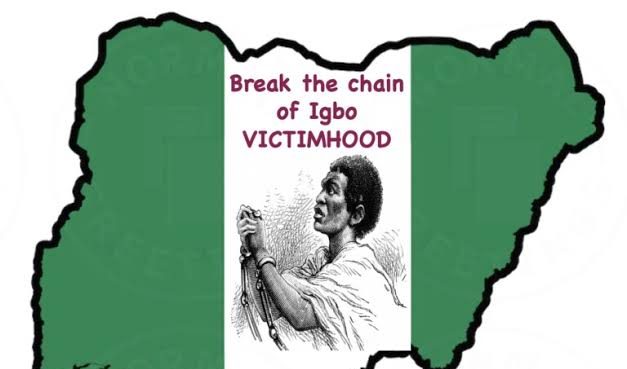Many Igbo people may not be the easiest people to live with. Some are loud, showy, defensive, or even territorial.
As an Igbo granddaughter, I used to take issues with this, I even brought it up with my mum, who’s from Anambra.
I didn’t understand it then.
But with age, exposure, and honest reflection, I see things differently now.
Growing up and watching how Igbos are constantly labelled and stereotyped, even when many are doing more than the average Nigerian just to be ideal citizens, I’ve come to one simple realization: Nigeria made them so.
How do you expect people not to be defensive when the odds have been stacked against them for decades?
How do you expect silence from a people who, after the Biafran War (1967–1970), lost everything and were forced to start life afresh with just £20 regardless of how much they had in the bank?
Their loudness is not just noise. It is a declaration of survival.
It’s a statement of resilience.
Like the Phoenix, they’ve had to rise from their ashes, again and again, after war, persecution, religious violence, and political exclusion.
Their loudness, sometimes mistaken for pride, is a coping mechanism, a way of saying,
“We’re still here.”
These are people marked by trauma.
Some inherited it directly from their parents’ experiences. Others received it through stories, scars, and even through bloodline.
Yes, trauma can be passed down. Generational trauma is real.
And some of them know this and are seeking healing, therapy, and peace.
But sadly, many others are constantly reminded of the hurt, by the names they’re called, the hate they face, and the rejection they receive.
Even in today’s Nigeria, they are still taunted and told to “go back to their land,” even when they are among the most visible contributors to state economies, real estate development, and commerce across the country.
How do you heal when you are still being hurt?
One difficult thing I’ve also observed, especially within some parts of my Igbo family, is this deep hunger for a saviour.
They want someone to rescue them from Nigeria, and because of this, some end up embracing anybody who carries the message of “freedom”, no matter the person’s character, background, or true intentions.
This, too, is trauma being expressed.
Also Read: Running a Private Airport in Nigeria Is No Easy Task – Asaba Airport Boss
And this is why sometimes you’ll see Igbos supporting people with questionable values, just because they seem like the next messiah.
Yesterday, I made a post thanking God that Kemi wasn’t Igbo. And I meant that. Because if she were, the entire tribe would have faced an embarrassing backlash due to one person’s actions.
Worse still, some Igbo people must have started defending her, not because they endorse her behaviour, but because they’re traumatised and quick to cling to any voice that appears to challenge the system.
This is not to cast blame. It’s to call for understanding.
The Igbo people are not perfect, no tribe is, but it’s time to look deeper and see beyond the surface. Nigeria broke something in them, and while many are trying to rebuild, they still need our help, not our mockery.
At the end of the day, our number one focus as Nigerians should be how to unite and take back our country from those who keep dividing us with tribalism, bigotry, and hatred, people who weaponize our suffering and poverty to keep us distracted and disunited.
If we’re not careful, we’ll keep fighting one another while they keep winning.
So whether you’re Igbo, Yoruba, Hausa, Ibibio, Ijaw, Tiv, or any other group, this is the real question: When will we stop pointing fingers and start holding hands?
Let’s be intentional about healing, about understanding one another, and about building a country where no group has to feel “less Nigerian” than the other.
We either unite and rise, or stay divided and sink.



